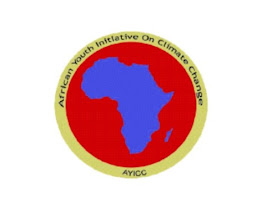Climate Change and Conflict: Where does the youth constituency fall in the scope of things?
The nexus…
It is really hard to talk
about climate change without mentioning conflict. So where is the nexus? It’s
pretty easy to see the connection. See, climate change manifests itself through
the effects and events that result like droughts and food scarcity. There is
one crucial aspect to everything though. Rafael Reuveny talks about migration
of people displaced by climate change related occurrences[1].
It is easy to see his point. Migration of people induces conflict. The
environment on the other hand majorly contributes to migration of people.
Real People, Real
Stories…..
Musa from Mauritania explains this when he says that back
home there is continuous conflict between people of various backgrounds as a
result of movement of people. Nomads often move to find food for their animals.
They end up having to encroach into areas occupied by farming communities and
in the competition for resources, conflict ensues.
Kennedy Liti from Kenya also expresses a similar point. In
the Tana River area in Kenya, conflicts between pastoralists and farmers are
common place. Migration in search of pasture and water often results in violent
conflicts. He also brings about a very interesting perspective. The youth get
affected adversely mostly because the conflicts disrupt most importantly their
education. They cannot be empowered in such a setting. That is a really
powerful statement because it means that they are ill equipped to apply their
minds to solving climate change.
Musa also raises the same
issue. He observes that the youth are mostly affected since they cannot be
empowered through education It means that they cannot not be engaged in finding
solutions to the problems affecting their communities. They are fighting for
their survival. It becomes a question of life and death.
Prince Doudou from the Democratic Republic of Congo embodies the story of
survival. He is in the COP process despite coming from Goma in Congo. Goma
is still in conflict as I write this blog. He tells me that the youth
get involved in the conflict through recruitment in the militia. It is really
unfortunate to even think about it. Yet it happens. The amazing bit is that he
cites climate change as having one thing or another to do with it, be it land
degradation, deforestation of drought. He reflects on the wasted potential of
the youth with a wee bit of sadness again talking about education and the lost
opportunity to spearhead sustainable solutions to the problems affecting them.
He also decries the lack of leadership from all quarters in tackling this
crisis.
The final nail in the coffin….
The narratives range far
and wide but with the same stories; be it Bangladesh or the Middle East or
Latin America, the issues are the same. Climate change induced migration is a
major factor in spurring conflict. It gets very interesting too. Reuveny brings
out the nexus between such conflicts and developing countries. The connection
is that least developed countries have less capability to come up with measures
to tackle climate change hence increased migration and you know what follows-
yes you got it right, conflict. This is pretty daunting stuff isn’t it?
The youth are caught at
the centre of all this. The narratives of Prince and Musa and Kennedy and
millions of others will continue to be told, and more ought to come out and be
repeated over and over again. These stories need to be released to the world. Perhaps world
leaders would then give it the attention it deserves and formulate policies
that enable the youth to regain their place in these societies hence contribute
to sustainable development. Only God knows how much urgent action is needed.
 |
| Refugees fleeing conflict in Goma |
 |
| A refugee camp in Mauritania |
 |
| A village attacked in Tana River... |

Comments
Post a Comment